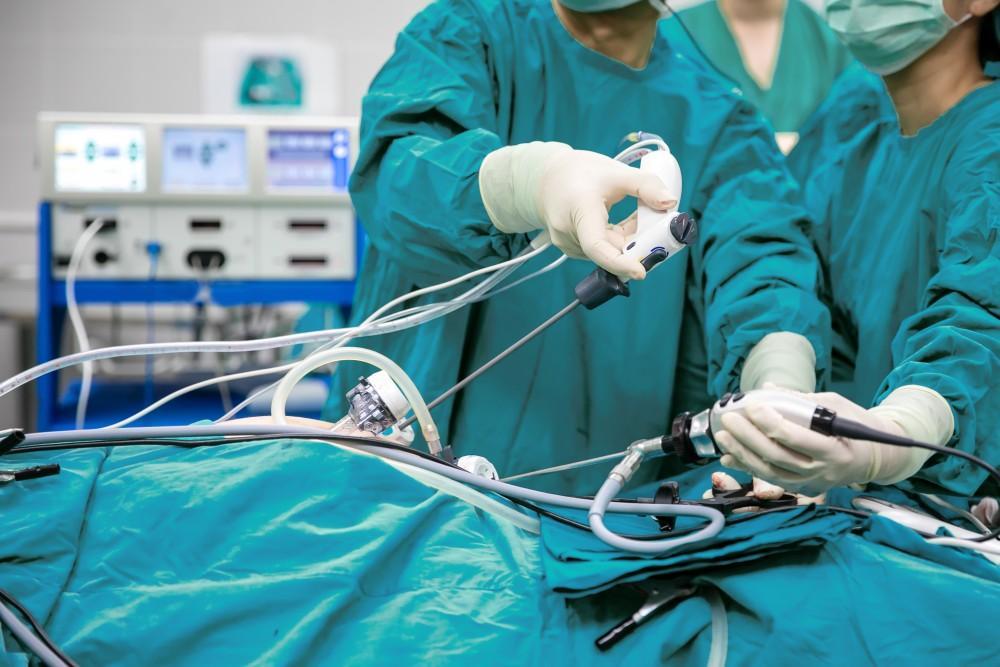
Does Having Gallstones Require Surgery?

Gallstone attacks can bring you to your knees. The sharp radiating pain that commonly strikes after a fatty meal is unmistakable for those who suffer repeat gallstone attacks. Each year, surgeons across America perform more than 700,000 gallbladder removal surgeries — known as cholecystectomies — to treat gallstones and other gallbladder problems.
If you have gallstones that cause repeated attacks, it’s recommended that you have gallbladder surgery. Here, we discuss what every gallbladder surgery patient should know.
What are gallstones?
Gallstones are hard, pebble-like masses that can be as tiny as a grain of sand or as large as a golf ball. They form in the gallbladder, a pear-shaped organ that stores digestive fluid known as bile. While bile is made up of several substances, it’s primarily composed of bilirubin, cholesterol, and bile salts. Most gallstones are cholesterol stones.
Why do I have gallstones?
Various factors increase your risk for gallstones. Some of them you can’t control, such as age, family history, and ethnicity — Native Americans, Mexican Americans, and Northern Europeans are at a higher risk for gallstones.
Other factors that increase your risk of gallstones include:
- Being overweight
- Lack of exercise
- Rapid weight loss
- High triglyceride levels
- Diabetes
- Bile duct problems
- Liver disease
Gallstones don’t always cause symptoms
Some patients with gallstones have no symptoms. If your gallstones are few and small, chances are you won’t even know they exist. When this is the case, surgery may not be necessary. However, people with many gallstones, large stones, or stones that have lodged in the bile duct tend to have excruciating pain following meals, particularly meals that are high in fat.
When you eat, your gallbladder contracts to release bile, a substance needed to digest fat-soluble vitamins and fat from the foods you eat. The pain related to gallstones often occurs when the gallbladder contracts to release bile. You may find that you can tolerate only a small amount of fat in your meals due to the pain.
Gallbladder surgery
The surgeons at Rockwall Surgical Specialists are experts in laparoscopic surgery and single-site robotic surgery for cholecystectomy. We routinely treat patients who have repeated gallstone attacks. Roughly 90% of cholecystectomies performed in the United States are laparoscopic.
Instead of making one large incision, laparoscopy for cholecystectomy involves making three to four small incisions in your abdomen. The surgeon then inserts a thin tube with a light and camera, along with other tools, in order to see and remove the gallbladder. Single-site robotic surgery involves one small incision, and your surgeon controls robotic arms that handle the instruments, allowing for even more precision.
Compared to traditional surgery for gallbladder removal, the laparoscopic approach offers various benefits, such as shorter recovery time, less pain after surgery, fewer side effects, and better cosmetic results. Unless there are factors present that would significantly complicate surgery, laparoscopic surgery is the best treatment for gallstones in the gallbladder.
What to expect after gallbladder surgery
Gallbladder surgery is safe and effective. You can expect to have some discomfort, but most patients return to work and their regular activities within a week to 10 days. You can expect some soreness to last two to three weeks, but compared to traditional surgery, the discomfort is much lower.
After surgery, your liver continues to make bile, and the fluid drips slowly into the digestive tract. Because you no longer have a place to store the bile that your liver secretes, it helps if you limit high-fat foods — such as pizza and full-fat dairy — after having your gallbladder removed. Some patients have no problems, while others find that high-fat meals cause digestive discomfort.
If you have gallstones, you will eventually require surgery. The team at Rockwall Surgical Specialists can answer your questions and guide you every step of the way. To schedule a consultation, contact one of our four convenient locations in Rowlett, Rockwall, Greenville, Forney, and Terrell, Texas — call or book online.
You Might Also Enjoy...


Is It Time for Your Colonoscopy?

Why Your Weight and BMI Are Important Barometers of Your Overall Health

When Does a Hiatal Hernia Require Surgery?

5 Compelling Benefits of Laparoscopic Surgery

